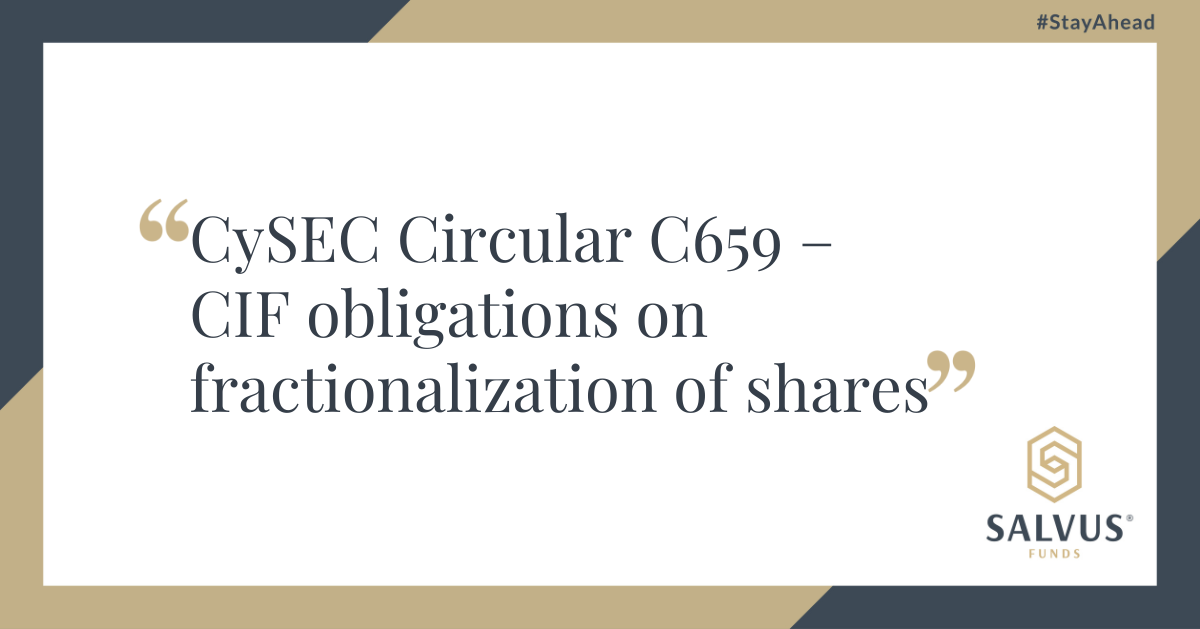CySEC Circular C659 – CIF obligations on fractionalization of shares
On the 26th of September, the Cyprus Securities and Exchange Commission (CySEC) issued Circular C659 outlining essential guidelines for Cyprus Investment Firms (CIF) enabling their clients to undertake fractional investments in shares. This guidance aims to clarify the responsibilities of firms as they navigate the increasing demand for fractional investments, ensuring that both clients and firms understand the obligations and protections in place within this innovative market.
What is a trust arrangement for fractional beneficial ownership?
Fractional share investments is a growing trend in online trading, allowing investors to hold a portion of a share rather than purchasing a whole unit. A trust arrangement for fractional beneficial ownership of shares allows multiple clients to share ownership of a single stock or share. In this instance, CIF entities act as the legal owner, holding the shares in trust on behalf of the clients. Each client owns a portion of the share, according to their agreed fraction.
CIF obligations on fractionalization of shares
While fractional shares have gained popularity across the European Union (EU), CySEC’s Circular C659, aims to ensure that firms offering these services meet strict compliance and transparency standards.
According to CySEC, fractional shares held under trust arrangements must align with the regulatory obligations outlined in Markets in Financial Instruments Directive II (MiFID II), Markets in Financial Instruments Regulation (MiFIR), and Law 87(I)/2017.
CIF entities facilitating these investments are required to ensure that:
- beneficial owners can effectively exercise their voting rights, taking into account the corporate laws of the country where the shares are issued.
- beneficial owners are entitled to receive dividends as part of their economic rights.
- owners have the right to claim a share of the company’s assets if it is wound up.
- fractional ownership does not change the status of whole shares as transferable securities under Law 87(I)/2017.
- they provide clients and potential clients with clear, accurate, and non-misleading information about the financial instruments and services they offer.
- instruments which allow fractional exposure to shares, but are not structured as trust arrangements, must not be presented or treated as shares.
- they safeguard client assets according to Law 87(I)/2017.
Due to the growing significance of fractionalization in share investments, CIF entities must uphold as they adapt to this innovative market, ensuring that both firms and clients are well-informed about their obligations and protections in relation to fractional shares. Firms offering such services must now document trust arrangements appropriately and maintain transparent records reflecting clients’ beneficial ownership.
The Regulatory Compliance team at SALVUS stands ready to effectively guide you through the applicable regulatory requirements regarding fractionalization of shares. We have had real first-hand experience in assisting entities achieving regulatory compliance and have successfully built on that to enhance our skillset and expertise.
Contact us at info@salvusfunds.com if you require support or guidance with your regulatory compliance obligations.
#StayAhead

